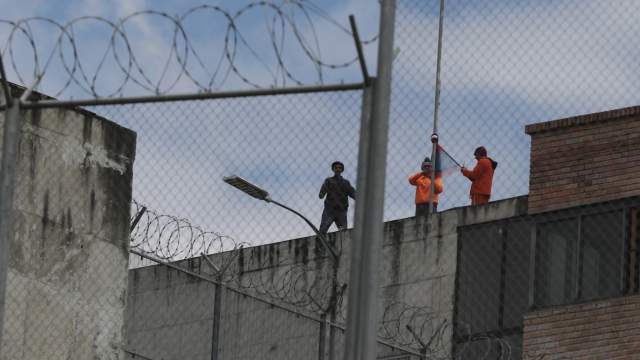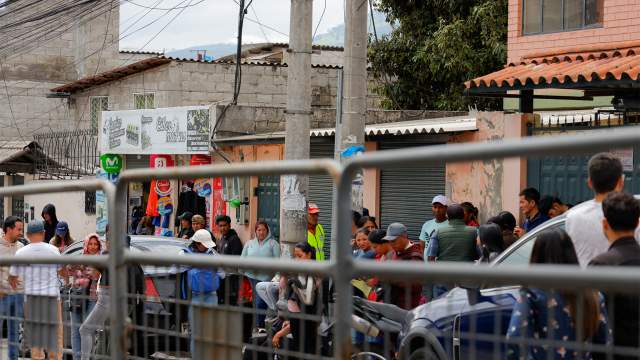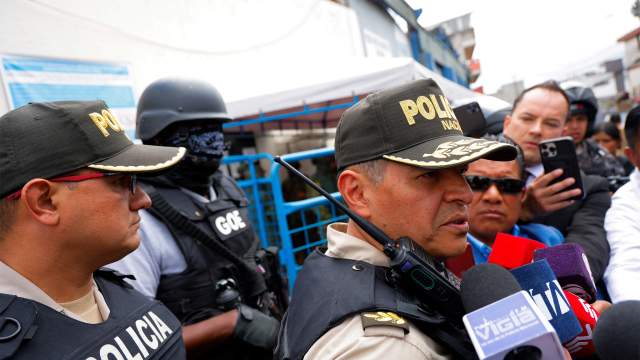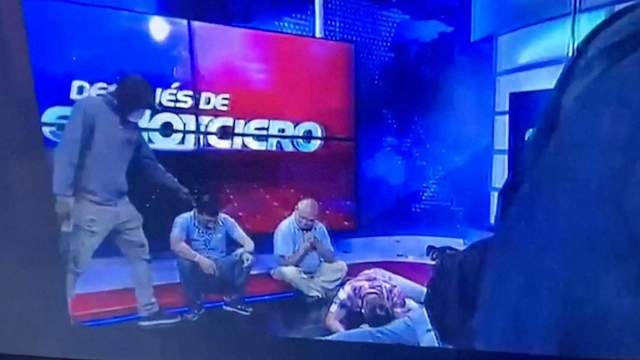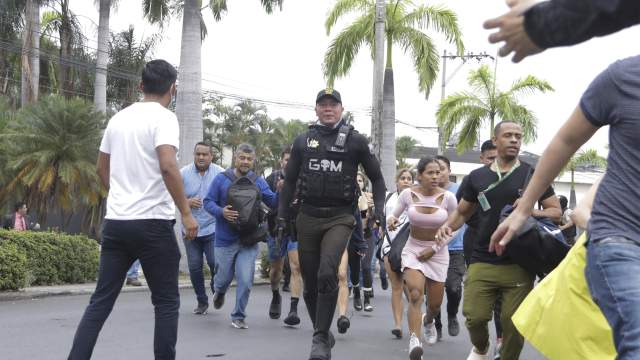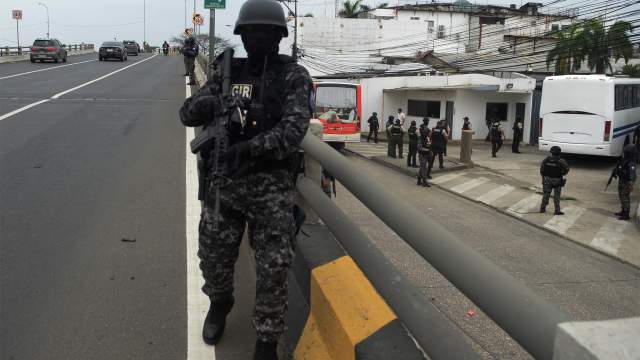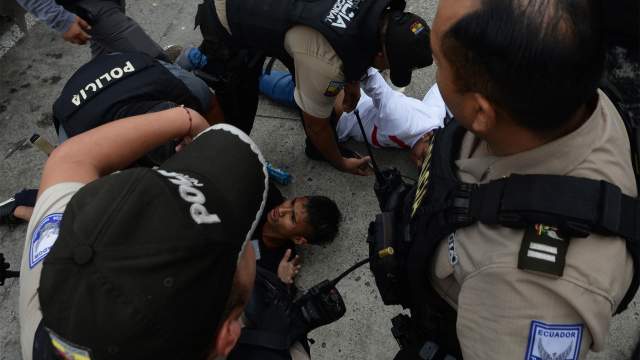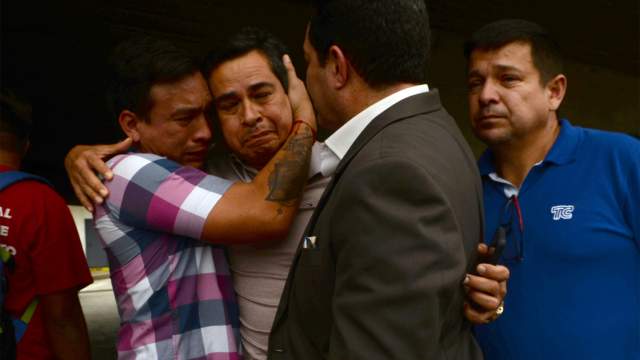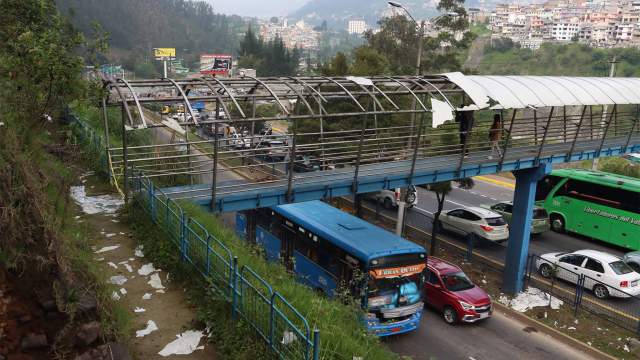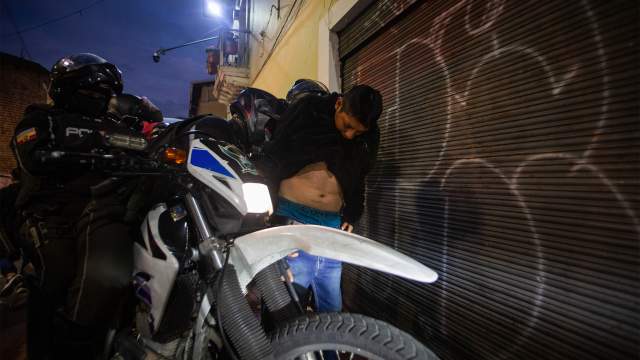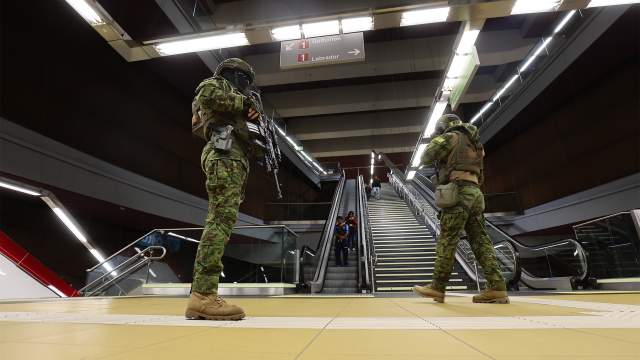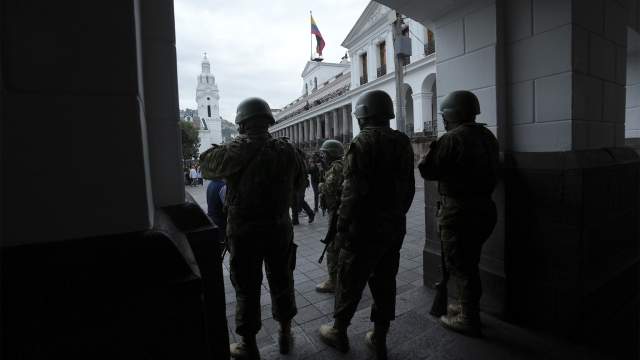Ecuadorian President Daniel Noboa announced the introduction of an “internal armed conflict” regime in the country due to the worsening security situation. He ordered the neutralization of 22 local criminal groups. Against the backdrop of the operation, clashes with police and acts of vandalism began in cities. There are civilian casualties. Read more in the Izvestia article.
Escape from prison of gang leaders
On Monday, January 8, it became known that one of Ecuador’s most dangerous criminals, Adolfo Macias, nicknamed Fito, the leader of the country’s largest organized crime group (OCG), Los Choneros, had escaped from prison. This year's prison break is not his first. Fito had been held in a Guayaquil prison since 2011 and was sentenced to 34 years in prison for organized crime, drug trafficking, and murder. Before that, he escaped in 2013.
Immediately after the discovery of Fito’s escape, about 3 thousand people were involved in his search. Because of what happened in Ecuador, the security situation has sharply deteriorated. Riots began in prisons; prisoners attacked guards and took them hostage. A total of 39 prisoners escaped from prison, 17 of them were caught.
In response to the disappearance of the Los Choneros leader, Ecuadorian President Daniel Noboa declared a 60-day state of emergency, including a temporary ban on public gatherings, a curfew, and the use of the country's armed forces to regain control of the country's prison system.
On the morning of January 9, in Chimborazo prison No. 1, clashes occurred between prisoners and guards, as a result of which the leader of another large organized crime group, Los Lobos, Colon Pico, fled from there.
On the same day, Daniel Noboa signed a decree declaring an “internal armed conflict” regime in the country. Also, a number of gangs and organized crime groups in the country have been recognized as terrorist organizations and warring non-state actors. Among them are “Los Lobos”, “Los Choneros”, “Los Tiburones”, “Latin Kings” and others. In total, the list consists of 22 groups.
Unrest in the country
After this, riots began in many cities of Ecuador. Unknown persons kidnapped seven police officers in the capital Quito and the city of Machala; three officers were later released. In Guayaquil, on January 9, criminals seized the studio of the TC Televisión television channel and took presenters and employees hostage. The media published live footage showing six masked men pointing guns at channel workers lying on the floor. Streets near the premises of TC Televisión and Gamavisión were blocked. Later, the police detained the participants in the attack.
Criminals began to burn cars and buses, and improvised explosive device explosions were recorded in Guayaquil. It was also reported that criminals broke into the National University of Guayaquil. Footage appeared in the media of students and teachers hiding and trying to defend themselves from criminals.
At the moment, at least ten people are known to have died in Ecuador as a result of the unrest.
Daniel Noboa has already convened a meeting of the National Security Council to resolve the emergency situation that has befallen the country.
Authorities' reaction
After the outbreak of the armed conflict in Ecuador, many Latin American countries expressed support for the authorities of the republic and also strengthened security measures. In particular, the Ministry of Internal Affairs of Peru has already announced an increase in the contingent of law enforcement officers on the border with Ecuador.
The conflict has also given rise to new concerns about the drug trafficking situation throughout the region. Bolivian President Luis Arce called on countries in the region to urgently join forces to combat drug trafficking.
The United States and Argentina, as well as the Organization of American States (OAS), have indicated their readiness to help the Ecuadorian government in the fight against criminal gangs and resolving the crisis in the country.
Official representative of the Russian Foreign Ministry Maria Zakharova said on the morning of January 10 on Sputnik radio that no incidents with Russian citizens have been recorded at the moment amid the aggravation of the situation in Ecuador. At the same time, the Russian Embassy in Ecuador recommends refraining from traveling within the country, as well as from visiting it.
#situation #tense #internal #armed #conflict #begun #Ecuador
